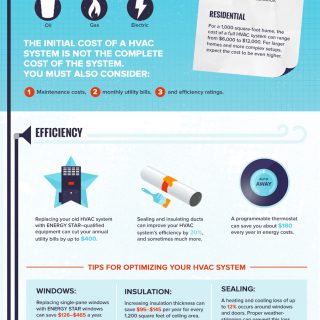The Connection Between Weather Issues And Heat Pump Efficiency, Along With Solutions To Enhance Efficiency
The Connection Between Weather Issues And Heat Pump Efficiency, Along With Solutions To Enhance Efficiency
Blog Article
Staff Writer-Creech Ogle
When it concerns your heat pump, weather condition plays a crucial role in its performance. From freezing temperatures to sweltering heat, each component can influence just how efficiently your system runs. But what can you do to combat these weather-related obstacles and ensure your heatpump is working at its finest? Keep tuned to discover sensible pointers and methods to optimize your heatpump's performance, despite the weather it encounters.
Weather Condition Factors Impacting Heatpump Effectiveness
Weather condition aspects have a considerable influence on the efficiency of heat pumps. One crucial element is temperature level. Heat pumps work by moving heat from outdoors to within throughout wintertime and the other way around in summer season. As temperatures decrease, it ends up being harder for the heat pump to essence warm from the outside air, minimizing its effectiveness.
One more crucial element is humidity. High moisture levels can make it a lot more challenging for the heatpump to launch heat throughout the cooling process.
Additionally, wind speed contributes. https://www.nbcnews.com/select/shopping/best-portable-air-conditioner-ncna1264920 can dissipate the warm taken in or released by the heatpump, affecting its total performance.
Tips for Optimizing Heat Pump Performance
To boost the efficiency and durability of your heat pump, executing a few vital methods can make a significant distinction in its efficiency.
Firstly, ensure regular maintenance by cleaning or changing filters every 1-3 months to stop air movement clogs and take full advantage of air flow. Furthermore, routine annual expert examinations to find and address any type of potential problems beforehand.
Optimum thermostat settings also play an important duty. Throughout the winter, aim for a temperature setup that's as low as comfortable, and throughout the summertime, set it as high as comfortable to decrease the work on your heatpump. Utilizing a programmable thermostat can help you immediately readjust settings based upon your timetable.
Furthermore, securing leakages in ductwork and shielding air ducts in unconditioned rooms can avoid energy loss and improve overall system performance.
Finally, think about installing a clever thermostat that can learn your practices and adjust settings accordingly, more optimizing your heat pump's performance. By complying with these ideas, you can ensure your heatpump runs efficiently and properly throughout the year.
Best Practices for Weatherproofing Your Heat Pump
For optimal efficiency and performance of your heatpump, carrying out weatherproofing measures is essential. Beginning by securing any kind of gaps or cracks around doors, home windows, and ductwork to stop warm loss and keep a regular indoor temperature.
Shield subjected pipelines and air ducts to avoid freezing throughout winter and make sure appropriate airflow. Think about mounting a protective cover over the exterior device to shield it from rough weather elements like snow, ice, and particles.
Consistently tidy the exterior device to remove dirt, leaves, and particles that can block airflow and reduce performance. Furthermore, maintain https://www.bhg.com/homekeeping/house-cleaning/tips/how-to-clean-air-filter/ around the heat pump free from snow, ice, and vegetation to permit proper air flow.
Final thought
Since you comprehend how weather condition impacts your heatpump performance, you can take proactive steps to optimize its performance. By following the tips detailed in this write-up, such as regular upkeep, thermostat changes, and weatherproofing actions, you can guarantee that your heatpump operates at its ideal regardless of the weather conditions. Remain ahead of the game and maintain your home comfy throughout the year.
